From March 31 to April 3, the second phase of the Technische Universität München (TUM) EMBA Shenzhen Research-Study Program was held at Tsinghua Shenzhen International Graduate School (Tsinghua SIGS). Over four days of academic seminars, corporate visits, and cultural exchanges, the program strengthened Sino-German educational collaboration and injected new momentum into innovation-driven partnerships.
Opening Ceremony: A New Chapter in Collaboration
On the morning of March 31, the opening ceremony took place at Tsinghua SIGS. Attendees included He Yonghong, Assistant Dean of Tsinghua SIGS, Jennifer Weißenberger, Director of TUM EMBA Program and 46 participants.

He Yonghong welcomed the TUM delegation, highlighting Tsinghua SIGS' flagship partnership with TUM since 2020. The 2024 research study program received acclaim from both institutions, laying a foundation for deeper collaboration.
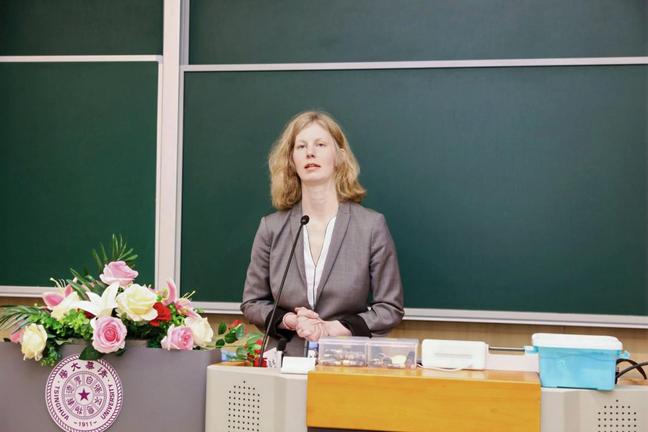
Weißenberger praised Tsinghua's innovative spirit and Shenzhen's dynamism, she also stated that the program is a new starting point for long-term collaboration between the two institutions.
Multidimensional Research and Study: Decoding Shenzhen's Innovation DNA
The program featured an integrated research-study system that combined theoretical, practical, and policy-oriented components, delivered through five modules: Humanities-Tech Lectures, Future Labs Exploration, Industrial Innovation Matrix, Entrepreneurial Dialogues, and Policy Decoding Workshops.
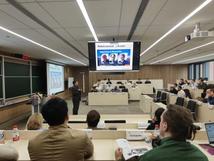
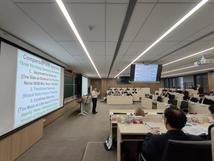
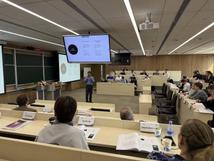
In the Humanities-Tech Lectures module, Tsinghua SIGS designed an interdisciplinary course series, showcased China's culture, economy, and cutting-edge technologies.
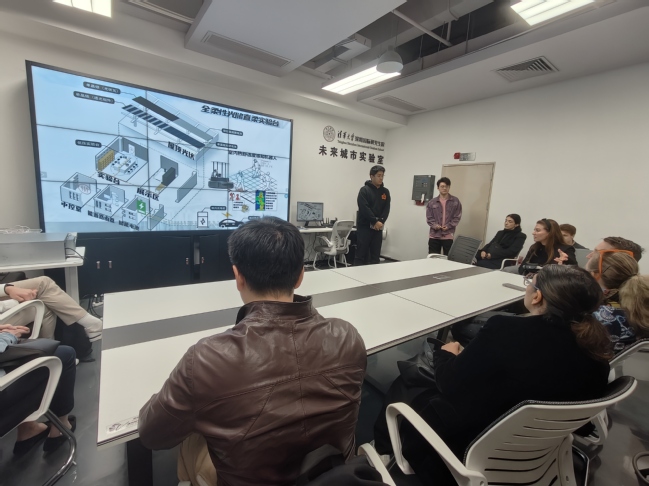
In the Future Labs Exploration module, participants visited Tsinghua SIGS' AI and Future City Labs, gaining hands-on experience in cutting-edge AI research and acquiring insights into future living technologies.
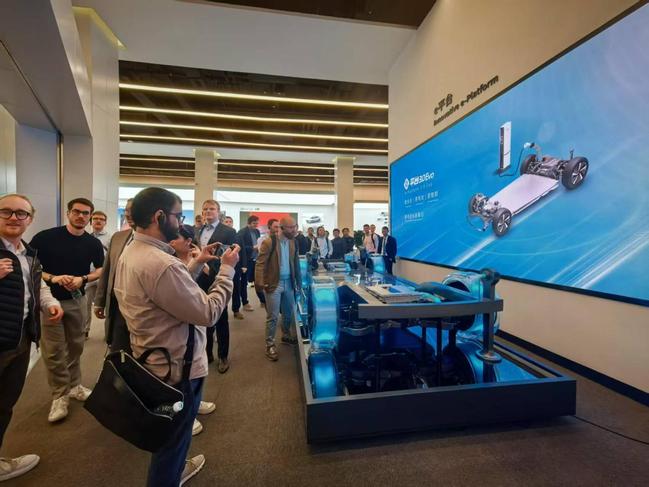
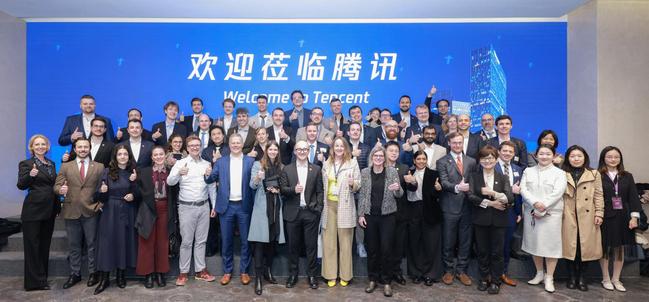
In the Industrial Innovation Matrix module, participants toured leading enterprises such as Tencent, Huawei, Han's Laser, BYD, and SF International,experiencing the technological vibrancy and entrepreneurial dynamism of Shenzhen.



In the Entrepreneurial Dialogues module, alumni from Tsinghua and TUM engaged in dialogues on global trends in Chinese and German enterprise development in Research Institute of Tsinghua University in Shenzhen.
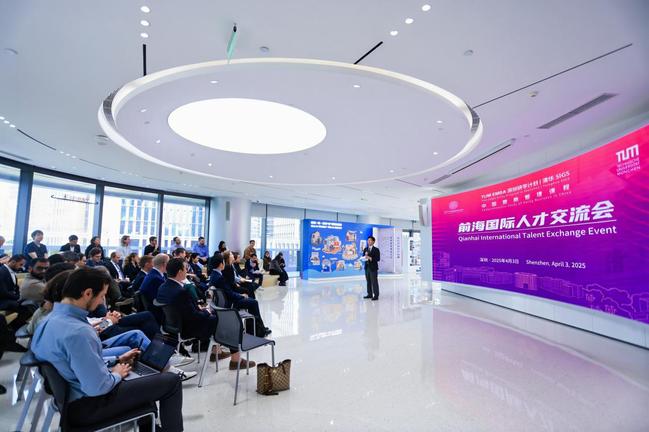
During the “Policy Decoding Workshops” module, participants explored Qianhai's business ecosystem through expert analyses of Shenzhen's SME development framework and first-hand accounts of multinational operations, showcasing the free trade zone's “one-stop” policy advantages for foreign enterprises.
Completion Ceremony: Sparking Innovation for the Future
On April 3, the closing ceremony was held. Associate Dean Zuo Jian'e awarded certificates to 46 students, praising the program's achievements as a catalyst for cross-cultural and cross-border collaboration. He emphasized that the program's completion marks a new beginning for TUM and Tsinghua SIGS.
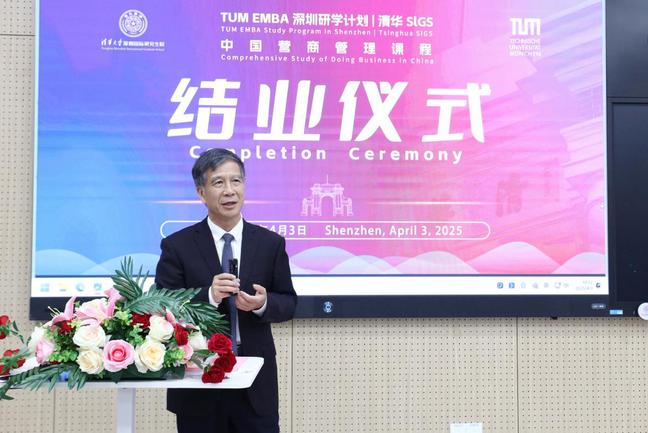
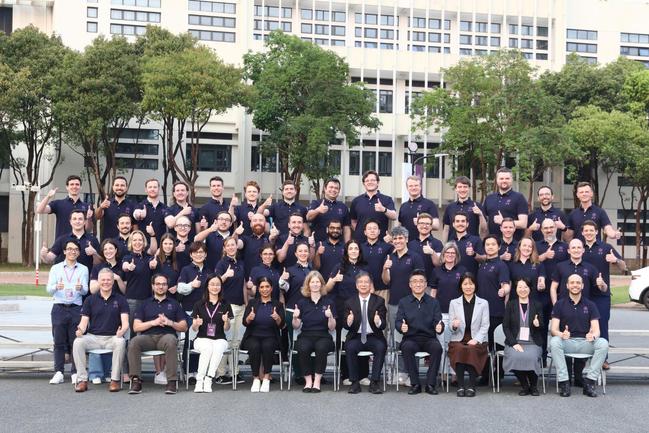
Student representative Doanna Breshna shared her enthusiasm for future engagements in China and Shenzhen: In just four days, we experienced Tsinghua's academic model and Shenzhen's innovative spirit. This city's technological evolution is reshaping industries and redefining human lifestyles.
Edited by Peng Bin and Wan Xinyi
Reviewed by Nie Xiaomei


